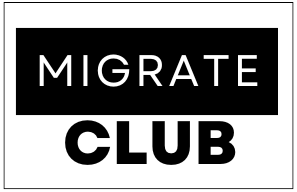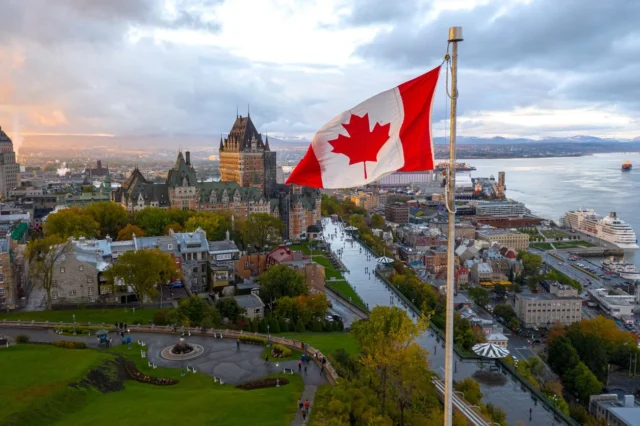Quebec, Canada, has recently set a limit on the number of family sponsorship visa applications it will accept, a move that could impact many potential immigrants, including Nigerians.
Application Cap Details
According to CIC News, Quebec has capped the number of family sponsorship visa applications at 13,000 across various categories. This cap is effective from June 26, 2024, to June 25, 2026. Within the 13,000 slots:
- 10,400 slots are designated for spouses, common-law partners, and dependent children aged 18 and above.
- 2,600 slots are reserved for parents, grandparents, and other eligible family members.
Once the cap is reached, Quebec authorities will stop accepting applications, returning any excess applications without processing or charging the procedural fee.
Purpose of the Family Sponsorship Visa
The family sponsorship visa allows Canadian permanent residents or citizens, including Nigerians, to sponsor their family members to live in Canada. This program aims to reunite families and help them build their lives together in Canada. Sponsors must commit to financially supporting their family members to ensure they do not rely on social assistance.
Exemptions to the Cap
Certain categories are exempt from the cap, including:
- A sponsor’s dependent underage child.
- Underage children the sponsor intends to adopt.
- An orphaned underage child of the sponsor’s sibling, nephew, niece, grandchild, or grandniece.
- A sponsor’s adult child who is dependent due to a disability.
To qualify for these exemptions, the sponsored individual must not be married or in a common-law relationship.
Context and Impact
The cap on family sponsorship visas is a response to Quebec’s housing crisis, exacerbated by the increasing number of temporary residents. This influx has strained housing availability and affordability. Additionally, the Canadian federal government aims to reduce the overall number of temporary residents.
In March 2024, Immigration Minister Marc Miller announced plans to decrease temporary residents to 5% of the population, down from 6.2%. This policy affects foreign students, workers, and asylum seekers, though essential workers in construction and healthcare are exempt due to labour shortages in these sectors. These workers can enter Canada at current levels until at least August 31, 2024.
Application Process
Canada’s family sponsorship program, managed by Immigration, Refugees, and Citizenship Canada (IRCC), requires sponsors to meet several criteria, including being at least 18 years old and residing in Canada. The application process involves two steps:
- The sponsor submits a sponsorship application.
- The sponsored family member submits an application for permanent residence.
Both applications are processed simultaneously, but sponsorship approval depends on the sponsor meeting eligibility criteria, including income requirements. Special considerations are given to orphaned relatives under 18 and other relatives under certain conditions.
Detailed Breakdown of the Cap
The new cap on family sponsorship visas set by Quebec has a profound impact on the immigration landscape. The allocation of 13,000 slots over a two-year period reflects a strategic move to manage the influx of immigrants more effectively. The majority of the slots, 10,400, are designated for spouses, common-law partners, and dependent children aged 18 and above. This prioritization underscores the importance of reuniting immediate family members, which is a core principle of Canada’s immigration policy.
The remaining 2,600 slots for parents, grandparents, and other eligible family members highlight a balance between immediate and extended family reunification. The cap ensures that the province can manage the additional demands on public services and housing while still honoring the commitments to family reunification.
Economic and Social Considerations
The decision to impose a cap is also deeply rooted in economic and social considerations. Quebec has been grappling with a housing crisis, with a significant increase in temporary residents exacerbating the situation. The influx of temporary residents has put pressure on housing availability and affordability, leading to the need for more stringent controls on new permanent residents.
Furthermore, the broader context of Canada’s immigration policy includes a federal government initiative to reduce the number of temporary residents. The policy, announced by Immigration Minister Marc Miller, aims to bring the percentage of temporary residents down to 5% of the population from the current 6.2%. This reduction is seen as necessary to alleviate pressure on housing and public services, ensuring that the country can sustainably manage its population growth.
Exemptions and Special Considerations
The exemptions to the cap demonstrate a nuanced approach to immigration policy. By excluding certain categories from the cap, Quebec acknowledges the importance of providing a lifeline to vulnerable groups. These include underage children who are dependent on the sponsor, children the sponsor intends to adopt, and orphaned children of the sponsor’s relatives. Additionally, adult children who are dependent due to a disability are also exempt, provided they are not married or in a common-law relationship.
These exemptions ensure that the most vulnerable family members are not disadvantaged by the cap, reflecting Canada’s commitment to humanitarian principles and family reunification.
Impact on Nigerian Immigrants
For Nigerian immigrants, the cap on family sponsorship visas presents both challenges and opportunities. On one hand, the limit on applications may mean longer waiting times and increased competition for the available slots. On the other hand, the clear delineation of categories and exemptions provides a structured pathway for those who meet the criteria.
Nigerian immigrants who are permanent residents or Canadian citizens can still sponsor their immediate family members, but they must be mindful of the new limits and plan accordingly. The emphasis on financial support by sponsors underscores the importance of economic stability and self-sufficiency for newcomers.
Federal and Provincial Coordination
The interplay between federal and provincial immigration policies is crucial in understanding the broader implications of the cap. While Quebec has the authority to set its own limits on family sponsorship visas, it operates within the framework of federal immigration policy. The federal government’s efforts to reduce the number of temporary residents align with Quebec’s objectives of managing population growth and addressing housing challenges.
The coordination between federal and provincial authorities ensures that immigration policies are implemented effectively and that the needs of both new immigrants and existing residents are balanced.
Future Outlook
Looking ahead, the cap on family sponsorship visas is likely to have a lasting impact on Quebec’s immigration landscape. The two-year period from June 2024 to June 2026 will serve as a critical test of the province’s ability to manage immigration effectively while addressing economic and social challenges.
The success of the cap will depend on various factors, including the province’s ability to address the housing crisis, support the integration of new immigrants, and maintain public confidence in the immigration system. Continuous monitoring and adjustments may be necessary to ensure that the policy achieves its intended goals without unintended negative consequences.
Conclusion
The cap on family sponsorship visa applications in Quebec represents a significant policy shift aimed at balancing the need for family reunification with the challenges of housing availability and public service demand. By setting clear limits and providing exemptions for vulnerable groups, Quebec aims to manage its immigration landscape more effectively. For potential immigrants, including Nigerians, understanding the new rules and planning accordingly will be essential for navigating the application process. As the province moves forward, the coordination between federal and provincial policies will play a crucial role in shaping the future of immigration in Quebec.

























